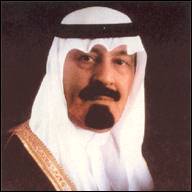 King Abdullah's visit to China and India, the first by a Saudi monarch in 51 years, offers Saudi Arabia, a chance to foster ties with the Asian emerging powers and perhaps reducing the kingdom's dependence on the West, especially the United States.
King Abdullah's visit to China and India, the first by a Saudi monarch in 51 years, offers Saudi Arabia, a chance to foster ties with the Asian emerging powers and perhaps reducing the kingdom's dependence on the West, especially the United States.The Saudi king is on a four- nation Asian tour that began in China, followed with India then Malaysia and later Pakistan.
In Beijing, China and Saudi Arabia signed a protocol to work together in petroleum, natural gas and minerals, in a fresh move to expand the substantial cooperation between the two countries.
On the eve of Abdullah's departure for the region Sunday Jan 22, 2006, Saudi Arabia's Arab News said in an editorial that India and China were "as much commercial giants as the United States or Europe."
King Abdullah was the guest of honor at today's Republic Day celebrations, a symbolic invitation highlighting the growing political ties between two countries that spent nearly 50 years on opposite sides of the Cold War divide. Republic Day marks the adoption of India's constitution in 1950.
Saudi Arabia supplies one-quarter of India's oil needs, and officials in New Delhi got the face time with Abdullah they were eager for when the king and his delegation met Wednesday Jan 24, 2006 with Indian Premier Manmohan Singh and other top officials.
India is also looking for Saudi investment in its oil industry.
Such investment, especially in Indian refineries and pipelines, would fit into Saudi Arabia's goal of building ties with China and India, said Mustafa Alani, a senior consultant at the Gulf Research Council, a think tank in Dubai, United Arab Emirates.
Apart from the attractive economic might of the two Asian countries, Alani said anti-Saudi political fallout in the United States and Europe after the Sept. 11, 2001, attacks has spurred the Saudis to develop ties in Asia. Saudi Arabia is the homeland of Osama bin Laden and 15 of the 19 suicide hijackers who carried out the attacks on the United States.
However, a Saudi offer earlier this month to help renovate New Delhi's grand mosque highlighted possible tensions in any India-Saudi relationship. While officials have not announced their decision, the government frowns upon direct foreign donations to Islamic institutions in India, a predominantly Hindu country with a large Muslim minority. Indian officials say such money helps promote Islamic militancy, the charge Islamic leaders deny.
No comments:
Post a Comment